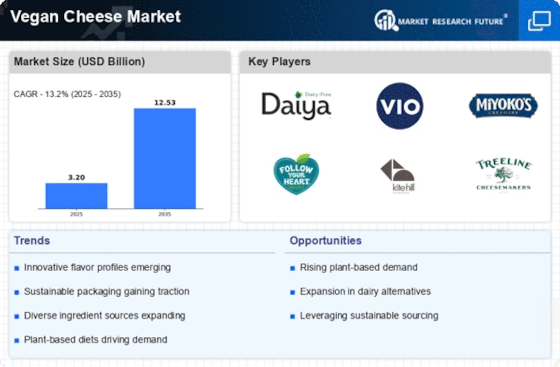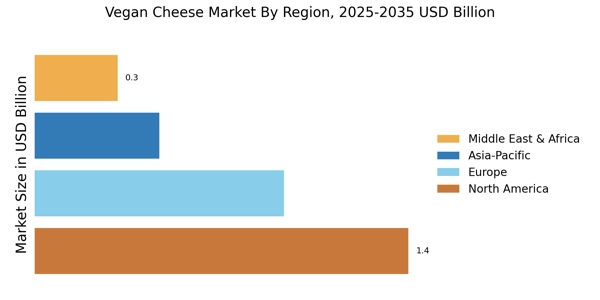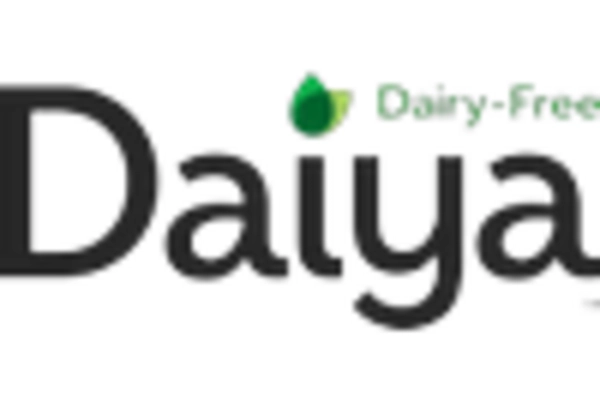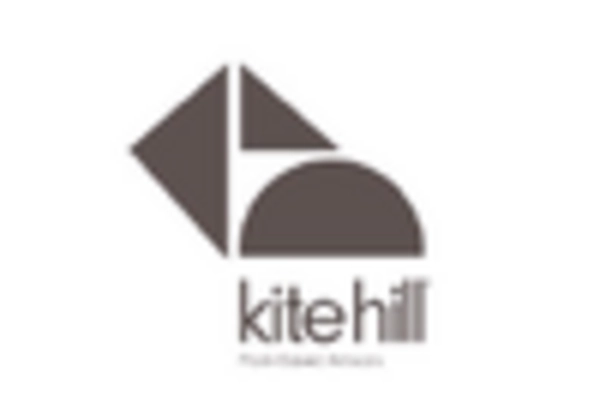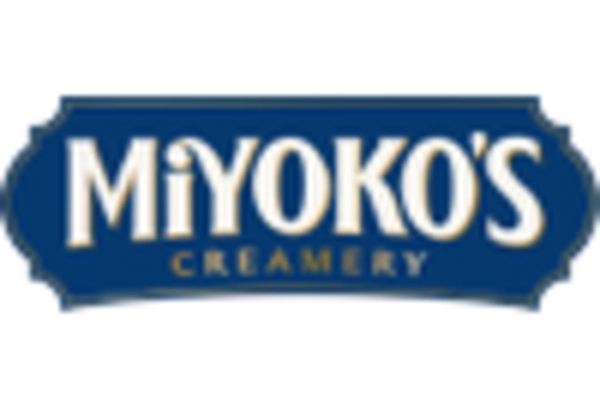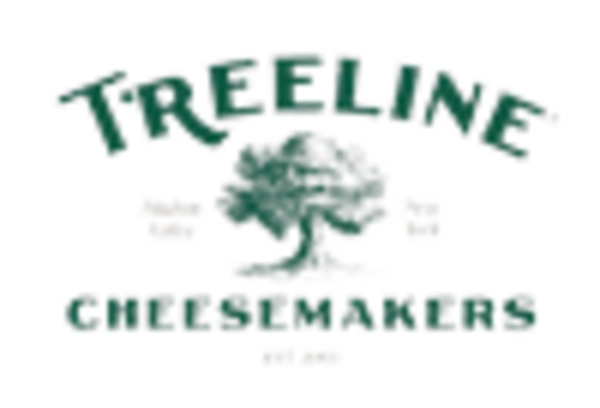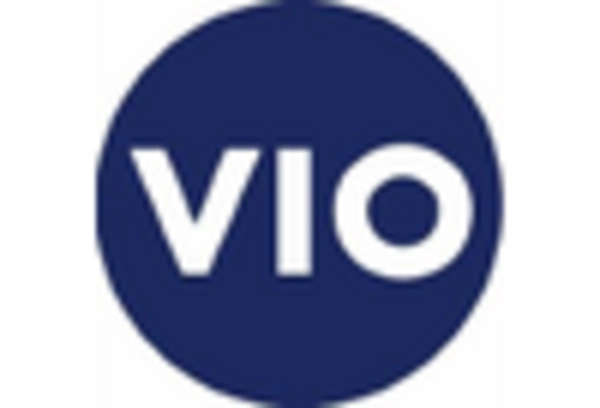Innovative Product Development
Innovation within the Vegan cheese Market is a crucial driver of growth. As consumer preferences evolve, manufacturers are increasingly focused on developing new and diverse product offerings. This includes a range of flavors, textures, and forms that cater to various culinary applications. The introduction of artisanal and gourmet vegan cheeses has expanded the market, appealing to both health-conscious consumers and food enthusiasts. Market analysis indicates that the segment for specialty vegan cheeses is experiencing rapid growth, with a projected increase of 25% over the next few years. This innovation not only enhances consumer choice but also positions the Vegan Cheese Market as a dynamic and evolving sector. As companies invest in research and development, the potential for unique and high-quality products may further stimulate market expansion.
Health Benefits of Vegan Cheese
The perceived health benefits associated with vegan cheese are contributing to its rising popularity within the Vegan Cheese Market. Many consumers are increasingly aware of the potential health risks linked to dairy consumption, such as lactose intolerance and cholesterol-related issues. Consequently, vegan cheese, often made from nuts, soy, or coconut, is viewed as a healthier alternative. Market data suggests that the vegan cheese segment is projected to grow at a compound annual growth rate of around 15% over the next five years. This growth is indicative of a broader trend where consumers prioritize health and wellness in their food choices. The Vegan Cheese Market is thus positioned to capitalize on this trend by emphasizing the nutritional advantages of its products, which may include lower fat content and higher fiber levels compared to traditional cheese.
Rising Veganism and Plant-Based Diets
The increasing adoption of veganism and plant-based diets is a primary driver for the Vegan Cheese Market. As consumers become more health-conscious, they are gravitating towards alternatives that align with their dietary preferences. Reports indicate that the number of individuals identifying as vegan has surged, with estimates suggesting a growth rate of approximately 20% annually. This shift is not merely a trend but appears to be a fundamental change in consumer behavior, leading to a heightened demand for vegan cheese products. The Vegan Cheese Market is responding to this demand by diversifying its offerings, ensuring that there are options available for various dietary needs and preferences. As more consumers seek to eliminate animal products from their diets, the market is likely to expand further, potentially leading to increased innovation and product development.
Increased Availability and Accessibility
The increased availability and accessibility of vegan cheese products are significantly impacting the Vegan Cheese Market. Retailers are expanding their plant-based product lines, making vegan cheese more accessible to a broader audience. This trend is evident in both specialty health food stores and mainstream grocery chains, which are increasingly dedicating shelf space to vegan alternatives. Market data suggests that the presence of vegan cheese in retail outlets has grown by over 30% in recent years. This enhanced visibility is likely to encourage trial and adoption among consumers who may have previously been hesitant to explore plant-based options. As the Vegan Cheese Market continues to expand its distribution channels, it is poised to reach new consumer segments, potentially leading to sustained growth and increased market penetration.
Environmental Concerns and Sustainability
Environmental concerns are increasingly influencing consumer choices, thereby driving the Vegan Cheese Market. As awareness of climate change and ecological degradation grows, many consumers are seeking sustainable food options. The production of dairy cheese is associated with significant greenhouse gas emissions and resource consumption, prompting a shift towards plant-based alternatives. Research indicates that the environmental impact of vegan cheese is substantially lower, making it an appealing choice for eco-conscious consumers. This trend is likely to continue, as more individuals prioritize sustainability in their purchasing decisions. The Vegan Cheese Market is responding by highlighting the environmental benefits of its products, which may include reduced carbon footprints and lower water usage. This alignment with consumer values could enhance market growth and foster brand loyalty among environmentally aware consumers.
.png)

